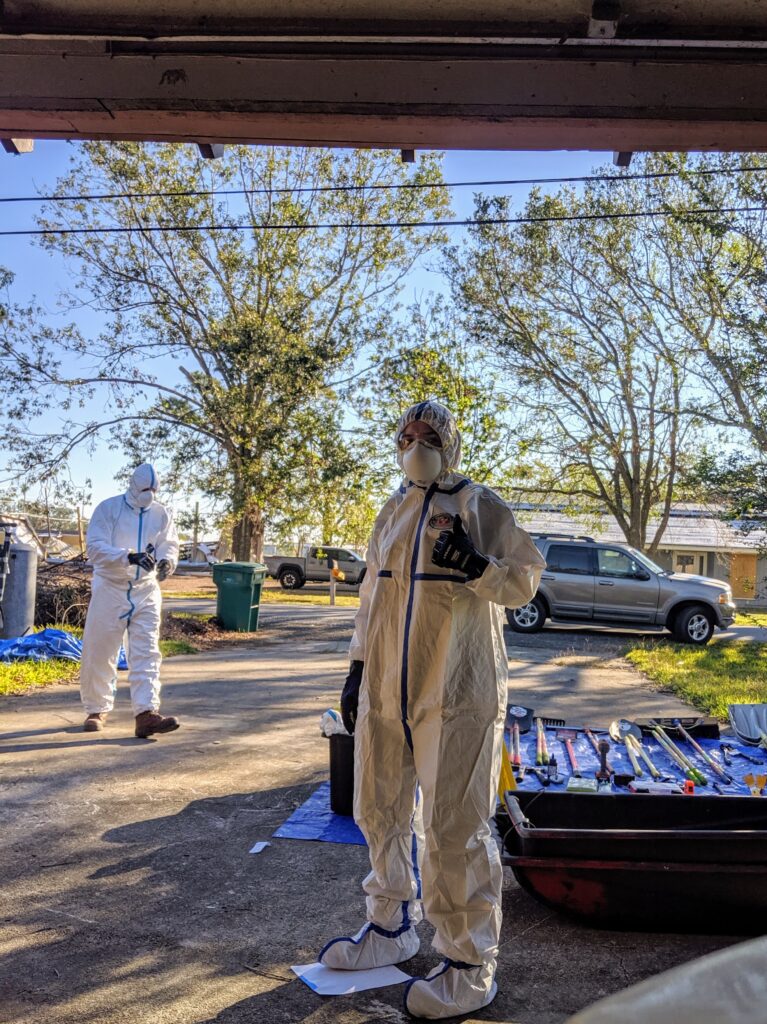We’ll keep the big question of if I’ll even live to 90 out of this.
Camaraderie will be what I most remember about the COVID-19 pandemic. That seems odd since most people felt isolated and alone, but that wasn’t my experience. When the virus was recognized, my college was moved online for about 4 months and I had limited hours at one of my jobs. Otherwise, my daily activities didn’t change much except for the extra hand washing and mask wearing. Those few months off of school likely caused the biggest impact on my pandemic perspective because it gave me the flexibility to go on more operations with Team Rubicon (TR), a disaster response organization. Being online, I was able to up and leave when hurricanes and tornadoes hit and (base internet permitting) still attend my classes. There’s always plenty of camaraderie on TR ops, or really anywhere you put a bunch of military and first responders together, but it was almost like the forced separation just made everyone want to engage even more. I can distinctly remember walking onto this big 4H property in Louisiana and looking around to see every person on the op spread out in camp chairs, on bleachers, sitting atop the opposite rails of a hog pen, wherever they could get space to social distance and still interact with one another. In a time where everyone felt so lonely and separated from each other, it was pretty wonderful to see.

This is me on one of multiple TR Ops I was able to go on because my classes were moved online during the COVID-19 pandemic.
We also had to drive with N95 masks on and the windows down no matter how fast or how far we were going. I’ll probably always remember that. We sure did get some funny looks from passersby.
